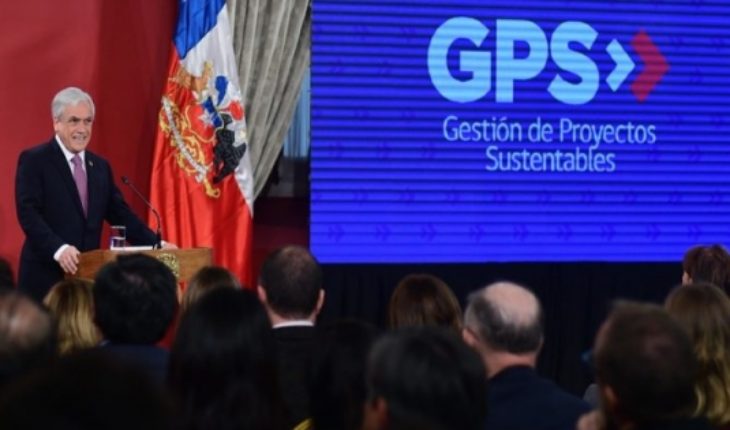this week end review in Parliament the indications l project Hey the Government joined 14 may 2018 and amending some legal texts to promote investment; including those relating to the amendment of law N ° 19,300 on Bases General of environment which will refer in this column.
The first thing which we should draw attention is that the Government presented the “Pro-inversion project” through the economy Commission of the Chamber of Deputies, i.e. attempts to modify environmental legislation through a Committee which is not related with the environmental protection, which shows a clear signal by the Executive that its priority is not to prioritize the environmental heritage and biodiversity of our territory.
The second thing is that July 27, 2018, the Government admitted to the Committee on environment and natural resources of the same camera, another draft law which proposes reform of the evaluation system of environmental impact (SEIA). The paradox is that this Commission not allowed to review, nor have to view the project of Pro-inversion. They communicate both projects? Do they complement? Are they contradictory? These answers are anyone’s guess who approved both projects, only may occur through the environmental consequences that these have.
But what are the main principles of the Bill proposed by the Government, and most importantly, what are the environmental consequences that could have on the case adopted the project of Pro-inversion?
One of the purposes of the project is to prevent the services to issue unfounded statements. We believe that incorporating is unnecessary since that law already says that the pronouncements must be founded. Indeed, the final paragraph of article 9 States: “the pronouncements of the organs of the State administration with environmental competition, shall be founded and formulated within the areas of their respective competencies“. In this sense, strengthen these powers, just give excessive powers to the SEA, which wields against the powers, obligations and powers of other services with environmental competition. This attribution excessive only serve to discretionary decisions such as those that already occurred with the Dominga project, where the political authorities of the previous Government cut the pronouncements of other services, particularly of CONAF.
In fact, improve environmental assessment requires that assessment processes are technically self-employed. And therefore would need to change the contractual figure of officials who evaluated the projects, every time that the precarious employment (approx. 95% of the contractual or honorary staff), makes unlikely or, to be honest, almost impossible, to the professionals to sustain and reaffirm technically their pronouncements, especially in projects deemed strategic or emblematic. The job insecurity puts female civil servants and officials, exposed to be pressured by the political authority of the day make a ruling based on these political interests, setting aside considerations of other services or any other technical consideration that harms the political decision. The role of the SEA is the be Coordinator of agencies with environmental competition, that is precisely one of their strengths; deepen this function should be the proposal and not remove attributions to other services, bypassing them to consider discretionary way how unfounded their pronouncements.
A second purpose of the Bill is to establish the binding nature and give legal responses to the consultations of relevance (pronouncement that a holder applies to the is to know if your project or activity, or modification, must be subjected to the) System of environmental impact assessment). The problem is that this measure allows owners to modify their projects through the tool called relevance. Give legal and binding will mean that the document which authorizes the project, resolution of environmental qualification (RCA), lose not only robustness and social validation as an instrument of approval or rejection of projects, but it also with regard compliance with their obligations and content, since now the project evaluated and qualified may be modified at the request of the holder through the consultations of properties. Complementarily, it hurts the monitoring and control of projects by the Superintendency, since the RCA will be modified by the properties that are issued after the environmental permit that is RCA.
Another purpose of the project is to strengthen the SEIA as single window, i.e., that all permits environmental sector (PAS) are delivered during the process of evaluation of the projects. At this point, there is a similar problem that comment when is watchful against the powers of services with competition environmental to “avoid” to make groundless pronouncements. In fact, the only way through which other services with environmental competence delivered the corresponding PAS during the period of evaluation and, in this way, avoid that I was pending subsequent to the RCA, is through discretion and greater attribution that will have the SEA to determine when it should be delivered. I.e., would the be may push or force the Agency with environmental competence to provide the PAS regardless of whether the holder has complied with the delivery of all the necessary background to obtain? If it is not thus why the project tries to convince us that deadlines for evaluating projects accelerate? It is worth mentioning that the reasons why public services do not deliver the PAS, are not related to the bureaucracy, neglect or ill will of its officers and servants. Rather, the main reason is that holders do not deliver the necessary and sufficient background so these PAS are extended (the paradox is that PAS currently delivered subsequent to the RCA, called mixed PAS because they have a component) (environmental and other sectoral, were part of the design to “increase efficiency and effectiveness” of the first Government of the own President Piñera).
Finally, another purpose of the project, according to the Government, is the eliminate the legal uncertainty with regard to the term of the RCA who is currently five years. I.e., if the project did not make the work that promised as work from home, its environmental permit expires. The Government proposes that this period does not begin to count, in the case of projects that has been lodged administrative or judicial resources from the moment of the delivery of the RCA with approval. So then, this proposed amendment is which is more related to lack of protection of the environment, as it does not seem prudent, nor reasonable, give more time to holders to start the beginning of their projects, when these initiatives of investment have brought them these resources (is worth mentioning that, sometimes, these resources are presented by own holders). Indeed, the main problem of extending the term of home in these cases, is that beyond five years, conditions, environmental variables and baseline from which were presented to evaluate the project could have changed considerably.
What if presented resources make that deadlines for expiry of the RCA extend for 8, 10 or more years? Can we ensure that the environmental components submitted for evaluation are kept in the same situation that when the baseline was done 10 or 15 years ago? Even more, what will happen in the case of projects that affect the average human, such as those where proposes and authorizes the resettlement of human communities;? in that event, are those affected in the uncertainty of knowing whether or not or not to be displaced from their homes in a period exceeding five years? With an environmental panorama so fickle and full of changes as of today, climate change of medium, seems hardly advisable to introduce the phrase proposed by the Executive at the end of article 25 ter extending deadlines for expiry of the RCA.
In short, all reforms effectively tabled by the Government are Pro-inversion, i.e., all point to streamline procedures holders, especially private ones, to make environmental regulations more permissible and lax for them. The point is that they will not accompanied by measures that make you counterbalance and is fulfilled as enshrined in article 1 of the law on the right to citizenship “to live in an environment free of pollution, the protection of the environment , the preservation of nature and conservation of the environmental heritage“.”
Poured in this op-ed content is the sole responsibility of your car r, and do not necessarily reflect the editorial line nor the counter position.





